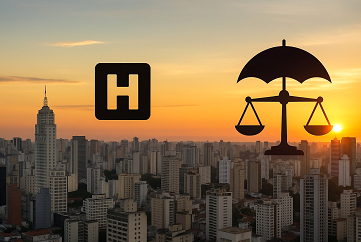Rio de Janeiro
Av. Presidente Wilson, 231 / Salão 902 Parte - Centro
CEP 20030-021 - Rio de Janeiro - RJ
+55 21 3942-1026

With more than eight thousand kilometres of Atlantic coastline and twenty major public ports, Brazil is an essential node in global trade, exporting iron ore, soy, crude oil, and manufactured goods to every continent. The Blue Amazon—Brazil’s vast exclusive economic zone—contains massive offshore energy reserves, while the Amazon and Paraná rivers carry cabotage traffic deep into the hinterland. A shipping lawyer orchestrates risk-mitigation strategies for owners, charterers, logistics operators, and P&I clubs that must navigate overlapping federal, port‑authority, and international rules to keep cargo moving and liabilities contained.
The National Waterway Transportation Agency (ANTAQ) licenses vessel operators, sets port tariffs, and enforces cabotage quotas; the Brazilian Navy’s Directorate of Ports and Coasts issues seaworthiness certificates and conducts accident investigations; individual port authorities manage berth allocations and safety plans. Legal counsel coordinates filings, appeals, and hearings across these forums to secure vessel permits, tug concessions and dredging approvals.
Law 14.301/2022—BR do Mar—relaxes foreign‑flag charter limits, incentivises fleet renewal, and aims to triple coastal shipping volumes by 2035. Lawyers draft bareboat charter contracts, flag‑in petitions, and tax-benefit applications while ensuring compliance with the manning and safety equipment localisation rules.
Time, voyage, and bareboat charters in the Brazilian trade often incorporate BIMCO clauses modified for local conditions, tax and port‑state requirements. A shipping lawyer tailors off‑hire, laytime‑demurrage, and ice clauses, aligning them with port draught restrictions, Amazon River tidal windows, and cabotage pilotage mandates.
Brazil has not ratified either convention, defaulting to the 2002 Commercial and Civil Code principles. Courts, therefore, impose strict or presumed carrier liability, shifting the evidentiary burden. Counsel invokes Himalaya clauses, foreign jurisdiction provisions, and limitation‑of‑liability defences to protect carriers and NVOCCs.
Brazilian procedure allows ex parte arrest for unpaid bunkers, crew wages, collision damage, and salvage. Security may be posted via P&I club letters of guarantee or bank bonds to secure release. Timing is critical: a lawyer must coordinate with the federal maritime court on Friday afternoons to prevent weekend delays that can cost six figures in lost hire.
FPSOs, drillships, and OSVs working the pre‑salt fields require REB flag‑benefit certificates and complex charter tax planning. Counsel structures split‑hire agreements, customs temporary admission regimes, and local-content waivers with the National Petroleum Agency (ANP).
The Oil Pollution Law imposes unlimited liability for clean‑up costs, while the National Environmental Council (CONAMA) mandates emergency response plans. Lawyers negotiate indemnities, draft SOPEP‑compliant procedures, and interface with IBAMA after spills to minimise fines and criminal exposure.
Private terminal operators sign thirty‑five‑year renewable concessions subject to throughput KPIs and investment milestones. Counsel prepares bid documentation, anti‑corruption certifications, and the EPC contract suites for berth expansions and greenfield terminals.
Shipping operations intersect with ICMS VAT, ISS service tax, and PIS/COFINS social contributions. Lawyers employ special customs regimes—REPES, REPEX—to suspend taxes on imported spares and bunker fuels, and draft FX contracts aligning freight remittance with Central Bank rules.
Brazilian‑flag crews fall under the Maritime Tribunal’s special jurisdiction and are entitled to hazard allowances and repatriation rights. Counsel drafts bilingual employment contracts, MLC‑compliant rest‑hour policies, and negotiates with powerful seafarer unions.
Brazil maintains specialised maritime courts in Rio de Janeiro and Belém. Arbitration is common for high‑value charterparty conflicts often seated in London, with enforcement in Brazil under the New York Convention. A shipping lawyer balances forum strategy against enforcement prospects and injunctive relief needs.
Hull & machinery, war, kidnap‑and‑ransom, and P&I covers must dovetail with local regulations. Counsel reviews cyber exclusions, sanctions wording, and OPA '90-equivalent clauses to assure responsive coverage for Brazilian voyages.
Venezuelan and Iranian cargoes pose sanctions risk. Lawyers implement KYC screening, draft sanctions-compliance clauses, and secure OFAC licences when permissible humanitarian exceptions apply.
The Tietê‑Paraná and Madeira waterways enable soy and mineral flows. Multimodal operators must obtain ANTT licences and issue CTMC multimodal bills subject to carrier liability of SDR 3 per kg. Counsel structures through-bills and transshipment indemnities across barge, rail, and ocean legs.
Brazil recognises Lloyd’s Open Form salvage, but court approval may be required for wreck removal expenses under the Ports Statute. Lawyers coordinate GA security collection, York‑Antwerp Rules application, and Blue Card P&I guarantees.
Electronic bills gain legal effect under Provisional Measure 2.200, leveraging ICP‑Brasil signatures. Counsel implements blockchain platforms, drafts EDI interchange agreements, and addresses cyber‑attack ramifications for AIS spoofing.
Although piracy incidents are rare, robbery in the Amazon delta persists. Lawyers draft private maritime security contracts, coordinate navy approvals for armed guards, and ensure compliance with the SUA Convention obligations.
IMO CII and EEXI apply to Brazilian‑trading ships. Legal teams advise on retrofit contracts, alternative‑fuel bunkering MOUs and green‑corridor pilot projects to meet charterer ESG mandates.
Blending admiralty litigation, regulatory navigation, and transactional depth, the shipping lawyer safeguards fleet operations, accelerates port investments, and defends against billion‑dollar liabilities, keeping Brazil’s maritime engine humming.
For tailored legal guidance, please email: [email protected]
 Mr. Alessandro Jacob speaking about Brazilian Law on "International Bar Association" conference
Mr. Alessandro Jacob speaking about Brazilian Law on "International Bar Association" conference Av. Presidente Wilson, 231 / Salão 902 Parte - Centro
CEP 20030-021 - Rio de Janeiro - RJ
+55 21 3942-1026
Travessa Dona Paula, 13 - Higienópolis
CEP -01239-050 - São Paulo - SP
+ 55 11 3280-2197